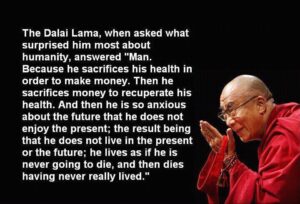Hey Santa Fe, Here Is How Exercise Can Affect Your Sleep
Sleep.
It’s one of the most critical, yet most often overlooked components to leading a healthy life.
As we train our bodies through exercise, we use precious energy and we need more sleep in order to replenish this lost resource.
The benefits of a good night’s sleep (between seven and nine hours a night) are numerous. This period of rest is crucial for muscle growth, increases blood supply, and repairs damage done to the body during exercise.
But what happens if we overtrain our bodies? How does pushing ourselves affect our ability to recover through sleep?
A study performed by the Journal of Sports Sciences found that if overtraining occurs, there is actually a decrease in our ability to sleep, recover, and perform.
The study followed 13 cyclists who were put through a period of intense training. Researchers found that after nine days of this training, the athletes had a drastic reduction in sleep quality.
The interesting part is that while the athletes were getting worse sleep, they were spending more time in bed. Throughout the night, they woke up frequently and got less sleep.
This lack of sleep, or “exercise-induced insomnia” occurs when we push our bodies passed their current level. The inability to sleep can be attributed to several problems that stem from overtraining.
When we exercise, our body produces a hormone called adrenaline
Adrenaline has a key role to play in the training process, as it helps with things like blood flow to the muscles and mental alertness.
Adrenaline is what gives you what you need to make it through your workout. However, it also has a negative effect on your ability to doze off.
When your body produces adrenaline, it is preparing to face a demanding physical task. The more strenuous the activity, the more adrenaline is present in your bloodstream.
Once this task is over however, your body may have some difficulty shutting down.
Another potential cause of exercise-induced insomnia is cortisol. Cortisol, like adrenaline, is a hormone produced by your body that helps during physical activity.
Cortisol helps your body to increase glucose concentration in your bloodstream. This gets energy to your muscles so they can perform the task you are asking them to do.
Cortisol also has a role to play in your body’s natural sleep patterns. When you wake up, your body is running with its highest level of cortisol. As you go throughout your day, the amount of the hormone gradually decreases, eventually hitting a point that signals to your body to go to sleep.
However, when you exercise you are giving your body a signal to produce more cortisol, and this can throw a wrench in your body’s sleep cycle. Scientists have found that elevated levels of cortisol can make it more difficult to fall asleep.
Among these hormonal issues, there may be other problems that exercise can have on your sleep.
Many exercise supplements, particularly in endurance sports, contain caffeine. This aids in focus during the activity, but can cause serious problems when it comes time to catch some z’s. Studies have found that when caffeine is ingested, cortisol levels can remain elevated for up to 18 hours!
Luckily, there are some steps you can take to prevent or ease this problem.
Staying hydrated and properly fueling yourself can help reduce your body’s need for cortisol production. High levels of stress can also increase cortisol. Experts prescribe allotting for times of meditation or relaxation to help combat the effects stress can have.
If overtraining is causing problems with your sleep, you should also take a break from exercising or decrease your workload. Give your body a couple days of rest and recuperation.
Your diet also offers a path to a solution.
When suffering from insomnia, eat clean meals with high levels of protein and iron, and drink plenty of water. Avoid food high in sugar and simple carbohydrates, as these can spike your blood sugar levels and cause a hormonal imbalance.
Eliminating or reducing your daily caffeine intake can also have a positive impact on your ability to sleep. Studies have shown that one cup of coffee can increase cortisol levels by up to 30%. Avoid supplements that have caffeine in them, particularly if you exercise later in the day.
Fear of overtraining is not a reason to avoid exercise.
Focus on doing what is right for you and listen to what your body is telling you.
When done properly, exercise is a vital component to getting a good night’s sleep and ultimately improving your health.
Find out more @



Leave a Reply